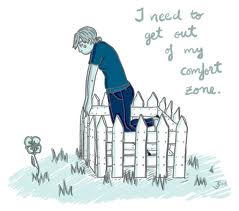Avoiding Depression
Ok so what can we do to avoid depression? The best approach to managing your mental health is to take a holistic view by encouraging good physical, mental and spiritual health. Simply looking after your physical health in isolation from your mental and emotion health will not guarantee protection against depression, anxiety or stress. Having a spiritual view of life, one that gives you a purpose and a sense of meaning to life is also very important for good mental health. Here are five top ti ps:
ps:
(1) Cultivate a good support system of family and friends – who can be there for you when life gets difficult or throws a challenge your way. We all need support from time to time and we should all trust ourselves enough to ask for support in times of difficulty.
(2) Eat healthily – a healthy diet doesn’t just help to keep your weight manageable, it also helps to prevent against a number of diseases, includi ng heart disease, hypertension, diabetes, osteoporosis and a number of diet-related cancers such as: colon, breast, cervix, gall bladder, ovary, thyroid, kidney, prostate and esophagus. The added benefit of ensuring that you are eating a nutritional diet is that your body will function at its optimal best which means that you will naturally feel better too.
ng heart disease, hypertension, diabetes, osteoporosis and a number of diet-related cancers such as: colon, breast, cervix, gall bladder, ovary, thyroid, kidney, prostate and esophagus. The added benefit of ensuring that you are eating a nutritional diet is that your body will function at its optimal best which means that you will naturally feel better too.
(3) Exercise – encourage those feel good endorphins by being active: Brisk walking, swimming, running, cycling, playing sports, going to the gym, running around with your children – even mowing the lawn or cutting th e hedge count. Research shows that exercise results in: up to a 35% lower risk of coronary heart disease and stroke; up to a 50% lower risk of type 2 diabetes; up to a 50% lower risk of colon cancer; up to a 20% lower risk of breast cancer; a 30% lower risk of early death and, a 30% lower risk of depression.
e hedge count. Research shows that exercise results in: up to a 35% lower risk of coronary heart disease and stroke; up to a 50% lower risk of type 2 diabetes; up to a 50% lower risk of colon cancer; up to a 20% lower risk of breast cancer; a 30% lower risk of early death and, a 30% lower risk of depression.
(4) Go with the flow – people are at their happiest when they are fully engaged in a task that is interesting, challenging, and intrinsically rewarding to them.  This is the experience of “losing yourself in the moment” or, as sports players say, “being in the zone.” Pitch the task correctly by choosing something that is challenging but achievable and then lose yourself in it. Immersing yourself in this way allows you to “switch off” from all your everyday concerns and experience a greater enjoyment of life.
This is the experience of “losing yourself in the moment” or, as sports players say, “being in the zone.” Pitch the task correctly by choosing something that is challenging but achievable and then lose yourself in it. Immersing yourself in this way allows you to “switch off” from all your everyday concerns and experience a greater enjoyment of life.
(5) Practice mindfulness, yoga and/or meditation – All or any of these practices will promote a deeper self-understanding which results in your being better able to appreciate and look after your Self. Whe n we are more self aware we are naturally better able to make choices that are good for us deep down without being so affected by external influences. Self-awareness builds trust in our own judgement and facilitates a happier level of being.
n we are more self aware we are naturally better able to make choices that are good for us deep down without being so affected by external influences. Self-awareness builds trust in our own judgement and facilitates a happier level of being.
Look after yourself and your Self will look after you!
If you would like more information or some informal advice about depression or any other concern relating to thoughts, behaviours or feelings, please feel free to use the Contact Sarah page and I will get back to you.

 ain—a change of more than 5% of body weight in a month.
ain—a change of more than 5% of body weight in a month. e or embarrassment associated with suffering from depression. Depression, like asthma or a broken leg, is a medical condition, and like any medical condition it responds much better to prompt diagnosis and treatment. If you suspect that either your or somebody you know may be suffering from low mood or depression, a visit to your doctor is always a good idea.
e or embarrassment associated with suffering from depression. Depression, like asthma or a broken leg, is a medical condition, and like any medical condition it responds much better to prompt diagnosis and treatment. If you suspect that either your or somebody you know may be suffering from low mood or depression, a visit to your doctor is always a good idea. 


 ave our own comfort zones, from that pair of comfy old slippers, to our hobbies, habits and routines and these are what makes our life our own. We choose our friends and our pastimes, we choose what and when we eat and we choose what to belief and think (yes we do). Choosing to change means taking ourselves outside our comfort zone, seeing things from a different perspective and learning new ways to think, feel and behave.
ave our own comfort zones, from that pair of comfy old slippers, to our hobbies, habits and routines and these are what makes our life our own. We choose our friends and our pastimes, we choose what and when we eat and we choose what to belief and think (yes we do). Choosing to change means taking ourselves outside our comfort zone, seeing things from a different perspective and learning new ways to think, feel and behave.
 sought to avoid change and found it frightening, confusing and difficult to adjust to, then you will continue to react in that way unless you decide to do something about it. Change is such a difficult concept for so many of us that companies often run change management programmes to help their employees cope when they are undergoing change within their organisation.
sought to avoid change and found it frightening, confusing and difficult to adjust to, then you will continue to react in that way unless you decide to do something about it. Change is such a difficult concept for so many of us that companies often run change management programmes to help their employees cope when they are undergoing change within their organisation.

 which constantly supports a person’s life-long held beliefs about himself and the way he should live his life and how his life should be. There are three parts to this loop (i) the behaviour of the person, (ii) the self-talk that he/she persists in, and (iii) his/her own self-image and his or her expectations of his/her self. However, all human beings can choose to change their beliefs and attitudes should they wish to do so, since we choose our own beliefs and attitudes in the first place.
which constantly supports a person’s life-long held beliefs about himself and the way he should live his life and how his life should be. There are three parts to this loop (i) the behaviour of the person, (ii) the self-talk that he/she persists in, and (iii) his/her own self-image and his or her expectations of his/her self. However, all human beings can choose to change their beliefs and attitudes should they wish to do so, since we choose our own beliefs and attitudes in the first place.